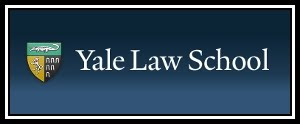If your New Year’s Resolution is to get a handle on your student debt, Equal Justice Works is here to help! Check out their message below detailing their upcoming debt webinars for this month:
As we enter 2013, educational debt remains a crippling burden for far too many, and especially for those who want to pursue careers in public service. Equal Justice Works provides in depth information on loan repayment assistance programs and relief programs like Income-Based Repayment and Public Service Loan Forgiveness to help everyone pursue the career of their dreams.
If you or someone you know needs a detailed guide to dealing with their student loans and earning forgiveness, it’s never too late to give them our new student debt eBook Take Control of Your Future as a gift! We go into the details borrowers need to understand and the exact steps they need to take to manage their educational debt and take control of their future.
Our weekly U.S. News blog, the Student Loan Ranger kept us busy during the last month of 2012. We reported on how the increasing student debt burden is impacting parents, took a look at the Consumer Financial Protection Bureau’s report on private student loan servicers, discussed the feasibility of public service careers for law school graduates and examined the true scope of student loan borrower distress.
Every month, our free, live webinars also provide a comprehensive overview of the debt relief options available for students and graduates – including Public Service Loan Forgiveness and Income-Based Repayment – and provide viewers with the opportunity to ask questions. Click here to view a schedule of our webinars and to register for an upcoming session.
Our January sessions include:
Plan Before You Borrow: What You Should Know About Educational Loans BEFORE You Go to Graduate School
Thursday, January 10, 3-4 p.m. EST
Interested in government or public interest work after graduating? This webinar will help you plan ahead and make sure you can take full advantage of the College Cost Reduction and Access Act, the most significant law affecting public service in a generation.
The webinar will teach you about:
– Taking out the right kind of loans
– Consolidating or reconsolidating your previous student loans
– How the College Cost Reduction and Access Act can free you to pursue a public interest career
How to Pay Your Bills AND Your Student Loans: Utilizing Income-Based Repayment
Thursday, January 24, 3-4 p.m. EST
Saddled with high student debt? This webinar reviews Income-Based Repayment, a powerful provision of the College Cost Reduction and Access Act that allows anyone with high debt relative to their income to reduce their federal student loan payments.
This interactive webinar will teach you:
– How to understand your federal loans
– How Income-Based Repayment works and if it is right for you
– How to sign up for Income-Based Repayment
Get Your Educational Loans Forgiven: Public Service Loan Forgiveness
Thursday, January 31, 3-4 p.m. EST
For recent graduates with jobs in government or at a nonprofit, this webinar explains how to make sure you immediately begin fulfilling requirements to qualify for Public Service Loan Forgiveness so that your educational debt will be forgiven as soon as possible.
You will learn about:
– The importance of having the right kind of Federal Loans
– What you need to do to qualify for Public Service Loan Forgiveness
– How long it will take to have your educational debt forgiven
P.S. – Don’t forget to register for the upcoming Summer Public Interest Job Search webinars on 01/15 and 01/22, co-sponsored by NALP and EJW!








